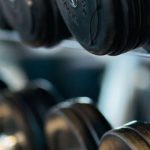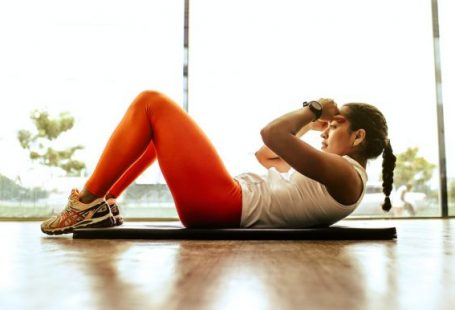Engaging in regular exercise is essential for maintaining overall health and fitness. However, it is not uncommon to experience muscle soreness after a workout, which can be uncomfortable and hinder your ability to perform daily activities. Fortunately, there are several strategies you can implement to reduce post-workout muscle soreness and promote faster recovery. In this article, we will explore some effective tips to help you alleviate muscle soreness and get back to your fitness routine feeling refreshed.
1. Warm-up and cool-down properly
One of the most crucial steps in preventing post-workout muscle soreness is to properly warm up and cool down before and after your exercise session. A dynamic warm-up, such as light jogging or gentle stretching, helps prepare your muscles for the upcoming activity, increasing blood flow and flexibility. Similarly, a cool-down routine that includes static stretching can help relax your muscles and prevent the buildup of lactic acid, which contributes to muscle soreness.
2. Hydrate adequately
Staying hydrated before, during, and after your workout is essential for preventing muscle soreness. Proper hydration helps flush out toxins and waste products that accumulate during exercise, reducing the risk of inflammation and soreness. Make sure to drink water before, during, and after your workout to maintain optimal hydration levels. If you engage in intense or prolonged exercise, consider incorporating electrolyte-rich beverages to replenish essential minerals lost through sweat.
3. Gradually increase workout intensity
When it comes to exercise, it is important to gradually increase the intensity of your workouts to prevent excessive muscle soreness. Sudden spikes in training volume or intensity can overwhelm your muscles, leading to increased soreness and potential injury. Instead, aim to progressively challenge your body by gradually increasing the duration, frequency, or intensity of your workouts. This allows your muscles to adapt and recover more effectively, minimizing post-workout soreness.
4. Incorporate rest and recovery days
Taking regular rest and recovery days is essential for reducing muscle soreness and achieving optimal performance. When you exercise, your muscles undergo microscopic damage, which is repaired during rest periods. Adequate rest allows your muscles to rebuild and become stronger, reducing the risk of excessive soreness. Make sure to include rest days in your training schedule and prioritize sleep to promote optimal recovery.
5. Use foam rolling and self-massage techniques
Foam rolling and self-massage techniques are effective in relieving muscle soreness and promoting faster recovery. Foam rolling involves using a foam roller to apply pressure to specific areas of your body, targeting tight muscles and knots. This technique helps release tension, improve circulation, and reduce muscle soreness. Additionally, using massage tools like lacrosse balls or massage sticks can help alleviate muscle soreness by targeting specific trigger points.
6. Consider active recovery exercises
Engaging in active recovery exercises on your rest days can help reduce post-workout muscle soreness. Active recovery refers to low-intensity exercises that promote blood flow and enhance muscle recovery without causing additional stress. Examples of active recovery exercises include gentle yoga, swimming, or light cycling. These activities help flush out metabolic waste products, reduce inflammation, and accelerate the healing process.
By implementing these tips into your fitness routine, you can effectively reduce post-workout muscle soreness and enhance your overall recovery. Remember to listen to your body, adjust your workouts accordingly, and prioritize rest and recovery. With consistency and proper care, you can minimize muscle soreness, allowing you to enjoy the benefits of regular exercise without unnecessary discomfort.





